Why Leaders Should Understand That New Skill Growth Takes Time
Learning a new skill or adopting new behavior is a process. A process, by definition, consists of numerous steps usually followed sequentially and often requiring that one step be completed successfully before another can begin.
Computer processes take a substantial amount of time to design; when complete they can make a lot of work seem automatic. Think of the calculations done by spreadsheet programs or the instant corrections to grammar and spelling by word processing programs. The speed creates an illusion of ease.
This illusion spills over into other areas of work and creates frustration when something takes longer or seems more difficult than it should be. Professional development is a classic example of this.
Training programs that promise more effective managers, more productive employees, and more accountable leaders in just a day away from the office are just plain wrong. They create expectations for fast and supposedly lasting learning that are simply unrealistic. Confusion, frustration, and disappointment are natural and inevitable by-products.
The simple truth is that growth takes time. While we may be able to pick up new concepts quickly, executing new behavior is a different prospect altogether. How many times have you known the right thing to do but found yourself unable (or unwilling) to do it?
Accepting the fact that growth takes time leads to the question of how much time is enough? The unsatisfying but true answer is: It depends. The variables that influence the answer include the desired outcome and how different it is from current norms, a person’s willingness and capacity to change, the resources available to support learning, and the urgency of the situation. There is no one-size-fits-all formula.
This makes workforce and executive development a messy, uneven, tough-to-quantify prospect. No wonder organizations struggle with it!
Success requires a change of mind regarding planning and implementation of development programs. Standardized programs and mass education are dinosaurs of the trade. E-learning enables individualized study, but it does not necessarily promote changed behavior. Only work ‘in the field’ can provide the practice and feedback necessary to change old ways. Coaching is often very effective in helping to learn and cement new practices, but it may not be practical or affordable on a grand scale.
The work of development must be done on a daily basis. It must become part of every meeting, every exchange of ideas, and all communication. Just as a dieter gets used to taking the stairs instead of the elevator, people at work can successfully challenge and change habits that no longer serve them.
Leaders must accept the responsibility for modeling desired behaviors both in terms of providing guidance and receiving feedback. The higher up one goes, the rarer feedback becomes. To change this, leaders must ask for and be open to feedback.
Cultures transform when people at all levels and across all functions teach and learn from one another. This transformation is neither sudden nor easy. It takes time and full measures of patience, persistence, and practice. Given today’s challenging circumstances, I can’t think of a better time to get started.
Categories: Leadership